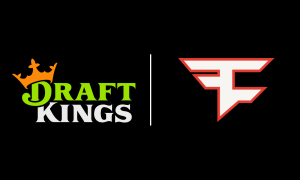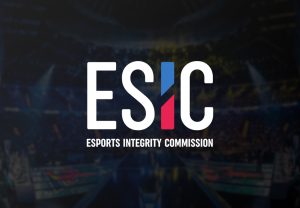
Esports betting has had a prominent two years. The mass exodus of sporting events that started in 2020 caused bookmakers to turn towards competitive gaming. Moreover, the US has started to embrace the sector with more legislation across a range of states permitting esports betting.
Esports betting is an industry staple. However, as a sector in constant flux, it can be hard to keep up with. To clue you in on the state of play, here’s a rundown of some of the biggest esports betting topics of 2021.
Esports betting in America

When highlighting the esports betting sector in 2021, all eyes immediately turned to the US. Much like in 2020, it was a prosperous 12 months for the country’s betting scene — whether that was for traditional sports or the esports sector.
Two of the biggest stories in the US came from New Jersey and Connecticut with both states now allowing esports betting. In New Jersey, A637 — unofficially known as the esports betting bill — revised the definition of sporting events in regards to the Garden State’s sports betting regulations to include esports.
Meanwhile, Connecticut’s HB 6451 bill also recognised esports as a sporting event. This allows operators to post and accept bets on competitive gaming events similarly to traditional sports.
It wasn’t only new states that were developing the esports betting scene in 2021. In November, the Nevada Gaming Control Board appointed several members to its Esports Technical Advisory Committee to bolster betting on esports in the state. Some of the names featured included Paul Hamilton (Atlanta Esports Ventures), Christian Bishop (Method), Jud Hannigan (Allied Esports) and Brandon Snow (Activision Blizzard).
Overall, esports betting’s growing prominence in the US has allowed for greater possibilities within the space. As more American states start to allow esports into betting regulations — which admittedly are still in its infancy — then greater opportunities and investments will be unlocked.
Investing in esports betting’s future

Given the US’ esports betting development, as well as the overall popularity of competitive gaming growing, 2021 saw a multitude of investments within the sector.
Perhaps one of the major stories to come out of this year was esports bookmaker Rivalry becoming publicly listed in October. Entering the TSX Venture Exchange, the company joined the growing trend of esports entities joining the stock market. This includes fellow esports bookmaker Luckbox, which entered the TSX Venture Exchange in December 2020.
Rivalry also secured over $40m in funding over the course of 2021, with many other esports betting-related companies securing valuable investments. The likes of Luckbox and Oddin bolstered operations through investment rounds. Entain’s acquisition of Unikrn, for a reported £50m, will also see sports betting operator launch new esports betting products in 2022 for its customers. Some of Entain’s sports betting brands include Ladbrokes and bwin.
As the esports industry becomes more mature and professional, it certainly seems that traditional betting’s goliaths are looking at the scene’s betting sector. This is no more apparent than Entian’s acquisition, and the growing number of esports integrations by mainstream betting firms.
All about esports data

Many look at esports betting and just think of bookmakers and fantasy esports, however, data is an integral part of the sector’s success. In particular, this is highlighted by sports betting service provider Kambi Group acquiring esports data firm Abios in August 2021.
Kambi Group purchased Abios for a total of SEK270m (~£22.63m). According to Kambi Group’s COO Erik Lögdberg, the purchase was made to pursue both organic and acquisitive growth opportunities.
Within GRID’s $10m (~£7.28m) Series A funding round, the platform reported that ‘leading investors in the gaming, iGaming and tech industry’ took part in the investment.
Throughout 2021, data providers such as Pandascore have secured deals with esports betting bookmakers to further bolster products to customers. The development of esports data solutions in 2021 has also allowed bookmakers to provide greater odds and revamped platforms.
The development of esports data was showcased through Pinnacle’s launch of its esports hub betting platform in October. The hub features around 100 unique esports markets with over 2,000 live events per month, 7,000 pre-match events per month and embedded live streaming.
Esports data is continually developing across a range of esports sectors, with fan engagement and betting solutions seemingly being the most prominent. As such, the data landscape is just as crucial to esports betting as its bookmaker scene.
DraftKings officially enters the esports sponsorship game

Esports betting partnerships are not uncommon, however, this year saw multiple esports organisations and betting operators secure major sponsorship deals. Perhaps one of the biggest was FaZe Clan’s deal with fantasy sports company DraftKings.
The multi-faceted deal saw DraftKings team up with an esports organisation for the first time. Moreover, the deal includes content activations, a new podcast and branding on FaZe Clan’s CS:GO player jerseys. The partnership heavily signified esports and betting’s growing popularity in the US, with an emphasis also being put on educating fans about gambling responsibly.
It wasn’t just the US that was securing esports betting partnerships, with a variety of organisations around LATAM, Europe and CIS securing deals. In June, Betway announced a two-year partnership with G2 Esports. Meanwhile, Rivalry secured a partnership with 00 Nation to sponsor 00 Brasil, the organisation’s CS:GO team.
With the majority of esports betting partnerships centred around CS:GO, the title’s growing viewership figures will undoubtedly attract more brands. Moreover, it’ll be interesting to note if some partnerships will eventually expand into other titles, regulations permitted, or focus more on content creation.
An emphasis on integrity

Given esports betting has significantly grown over the last couple of years, it has been imperative that integrity remains strong during competitions.
Throughout the year multiple esports tournament operators joined focus with the Esports Integrity Commission to ensure that match-fixing is dealt with. Some of the entities to team up with the ESIC include Oddin, Esports Technologies, Promod Esports and Esports Charts, among many others.
Despite a variety of entities joining the ESIC, there were still instances of match-fixing. Nevertheless, due to ESIC investigations, three individuals were dealt with and given punishments. In August, three CS:GO players were banned for match-fixing behaviours at ESEA Season 5. Earlier this year, 35 individuals were also found guilty of betting-related infractions, which took place during ESEA official matches.
For esports betting to develop a good reputation, it is vital that integrity is maintained within esports tournaments. Whilst it may not be perfect, the ESIC’s continued development within the esports sector was certainly a highlight of the year.
Interested in more end of year round-ups from the esports world? Then have a look at ESI’s 2021 review of investments, partnerships and trending topics.
[maxbutton id=”14″ ]
